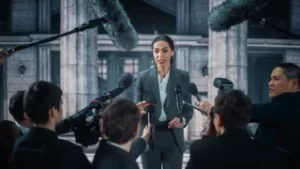One of the most common situations that we encounter at our firm is when a mother or father of a child born out-of-wedlock comes to us with a question about custody of their child. Perhaps one of the parents has taken the child out of state or to a new location and refuses to return them. Perhaps one parent is denying the other parent from seeing the child. Or perhaps a parent simply wants to know what their rights are under the law.
Indiana law speaks to many of these situations. In general, for a child born out-of-wedlock, and where there is no custody order in place, the child’s mother has sole legal custody. This is addressed in the Indiana Code under I.C. 31-14-13-1, which states that a “biological mother of a child born out of wedlock has sole legal custody of the child.” Mother’s sole legal custody is also called for under I.C. 16-37-2-2.1(h)(3). However, there are a number of exceptions to this general rule. A mother’s sole legal custody under the law may be affected by issues like pending guardianship proceedings, open “child in need of services” (CHINS) cases, the criminal history of the mother, etc.
If none of these exceptions apply, then the mother will retain sole legal custody of the child until a formal court order on custody is entered. This means that the mother will have the right to make all practical decisions for the child, including those pertaining to housing, schooling, healthcare, etc. Prior to the entry of a court order, the father of a child born out-of-wedlock will have little, if any, authority in the child’s care. At the same time, though, a mother with sole legal custody will not be able to compel the father to pay child support for the child, which can leave the mother paying for all of the child’s expenses. For these reasons (along with many others), it is usually in the best interest of both parties, and the child, that a formal court order on custody and support be requested as soon as possible. This can be accomplished by filing a petition with the relevant court, and asking that a hearing be set to address those matters.
Due to the complexity of the laws in this area and the many variables that come with each situation, navigating through a child custody and support case of this nature can be quite difficult. For these reasons, it is a very good idea to speak with an experienced family law attorney if you find yourself in such a situation.
Contact us if you have any additional questions or need assistance with a legal matter.
NOTE
All legal references are made with respect to Indiana law. Please check the laws of your local jurisdiction if you live in another state.
The articles in this blog are for informational purposes only. No attorney-client relationship is established through the publication of these articles.







